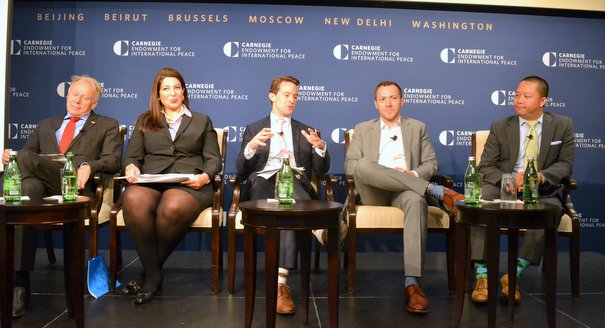Registration
You will receive an email confirming your registration.
Promethean changes are poised to reshape the transport sector, with significant implications for the greenhouse gas emissions of twenty-first century mobility. While various innovations will alter the drivetrains, fuels, and operation of transportation, no change is so dramatic as the prospect of increasing automation: the move towards genuinely driverless cars. Will autonomous vehicles prove to be a climate policy tool, or a climate policy challenge? What role might regulatory sticks and carrots play in shaping the future of vehicle automation so that it maximizes climate benefits? And how are two automotive powerhouses—Germany and the United States—preparing for these shifts?
The Carnegie Endowment for International Peace hosted a conversation with key thinkers on the future of driverless cars and how they could aid efforts to decarbonize the transport sector.
This event was cosponsored by the German Embassy’s Transatlantic Climate Bridge.
Speakers
Nicole Barranco
Nicole Barranco is the director of state affairs for the Volkswagen Group of America.
Chan D. Lieu
Chan D. Lieu is a senior legislative advisor at Venable LLP and former director of Government Affairs, Policy, and Strategic Planning at the National Highway Traffic Safety Administration.
Levi Tillemann
Levi Tillemann is the author of The Great Race: The Global Quest for the Car of the Future (Simon & Schuster, 2015), an analysis of the rise of electric vehicles and the intersection between policy and innovation in the global auto industry.
Jürgen Trittin
Jürgen Trittin is the former German Federal minister for the environment, nature conservation, and nuclear safety.
Moderator
David Livingston
David Livingston is an associate in Carnegie’s Energy and Climate Program, where his research focuses on innovation, market, and risks.
